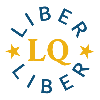International standards for information literacy
the inspiration for national practices
DOI:
https://doi.org/10.53377/lq.11131Keywords:
Information Literacy, Higher Education, Teaching, Portugal, Competencies , LearningAbstract
Librarians working in higher education want to support students in the pursuit of their academic work, based on the good use of information. To this end, they need to know the emerging pedagogical changes that they can take advantage of when designing their courses, integrating this knowledge into a more segmented, clear, and objective training offer, based on international references, published in the last decades, since the ACRL Standards, until the ACRL Framework. The attention given to these documents can prepare librarians for the necessary updating of skills, supporting innovation, and best practice achievement. This paper aims to systematise the evolution of concepts and practices of information literacy guidelines in higher education and identify their inspiration for the creation of Portuguese guidelines. An exploratory inventory of international information associations was carried out to identify information literacy guidelines. The content analysis of these guidelines allowed the identification of pedagogical trends in the performance of libraries and their professionals. The analysed contents show an interpretative evolution of the guidelines, converging in the ACRL Framework and the contents of the Portuguese recommendations for academic libraries for the period 2020-2022. It is evident that updating skills for librarians requires not only an awareness of sector trends, but also transforming them into good practice and recommendations appropriate for the national context.
Downloads

Downloads
Published
Issue
Section
License
Copyright (c) 2022 Tatiana Sanches, Maria da Luz Antunes, Carlos Lopes

This work is licensed under a Creative Commons Attribution 4.0 International License.





